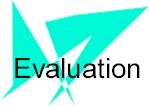





 A website created for families
who want to know more about the assessment process!
A website created for families
who want to know more about the assessment process!
|
|
|
Frequently
Asked Questions Concerning Assessment What
are alternative assessments? Alternative
assessments are used to assess a child in the "natural" setting, it is
based on school curriculum, and builds upon what the child does in the
classroom. An alternative assessment uses techniques that have students produce,
construct, demonstrate or perform a response. Different types of
this assessment are: Authentic and
performance assessment- Authentic
refers to set in real life situations
or realistic expectations. Examples of authentic assessment are actually reading
a section, writing a letter to a business, or using math to solve a real
problem. Performance
refers to the types of tests are constructed to assess what the students
can do. It requires to actively perform a classroom task. Portfolio
Assessment- a variety of samples of a
studentís work over time is collected. This type of assessment is often used
to show a studentís progress in reading and writing over a length of time,
although it can be used to determine achievement and progress in all areas. Dynamic
Assessment- used to evaluate the
studentís ability to learn in a teaching situation instead of assess what has
already been learned. The teacher evaluates how well the student performs in an
interactive teaching environment and can make a subjective evaluation instead of
relying only on test scores. Informal
Assessment- refers to other sources
for the teacher to gather information on a child. This may be done through
interviews with the student, checklists, observations, rating scales and teacher
made tests. What
does it mean when they say emerging, developing, mastered, non- mastered of
goals? Students develop at
different rates and based on the data gathered on the students the teacher may
say that they are in one of these stages. Emerging- the
student is just starting to understand the concepts presented. Developing-the
student is starting to use this new skill, but not on a consistent or
independent level. Mastered- The
student uses the new skill frequently and independently. Non-mastered-
The teacher has documented that no progress has been made, even though different
strategies have been used. What
is alternative testing or standardized tests? Your child may
participate in the standardized tests that are given to all students with
modifications as listed on the IEP. If your child will not participate in these
tests, as also stated in their IEP, then another type of standardized test must
be used to assess progress of your child. The current alternative test for
Collier County is the Brigance. This may be given several times a
year to show growth. My
son/daughter is scared of standardized tests, how can we give him/her more time
and or a smaller class size? At your IEP meeting
on your child you and/or the teacher may request small group and extra time for
testing situations. It must be on the IEP or it cannot be done. How
often can I find out about my childís progress? A year seems too long. As a parent you have
a right to ask for a meeting as often as you wish, the school is required by law
to meet at least once a year. I
think my child needs help in other areas, do I have to wait until the three year
evaluation? No, you may request
a more frequent evaluation of your child before the three year period. How
are the goals developed for my child? The information
gathered throughout the year helps the teacher to give present levels of
performance. With this information the teacher may have written
"preplanning notes" of goals that she feels are appropriate for your
child. As a team everyone discusses your child and your input is just as
valuable. The previous yearís goals will be reviewed and decided which ones
will be carried through to the next year, and which have been mastered and
non-mastered.
Web sites to visit for more in depth
information: Parental Rights: http://www.ldonline.org/ld_indepth/parenting/eric_e567.html Assessment information: http://www.ldonline.org/ld_indepth/special_education/thurlow_assessment.html This information was adapted from: Learning Disabilities Theories,
Diagnosis, and Teaching Strategies, 7th Ed. Janet W. Lerner Houghton Mifflin Company New York You, Your Child and Performance
Assessment Florida Diagnostics & Learning resources 3706 Estey Avenue, Naples, FL 34104 (941) 436-6483 |
|
|
Home | Background|
Pre-K | Elementary | Secondary
| Post-Secondary
|